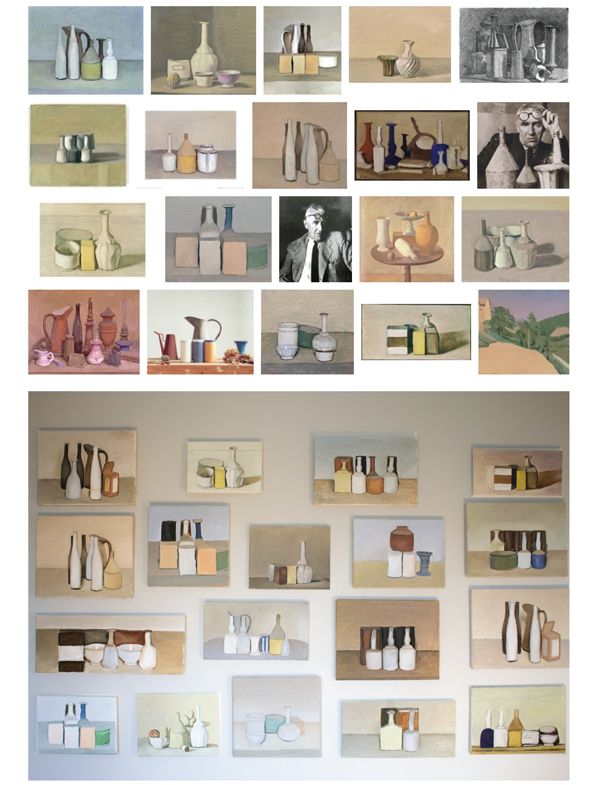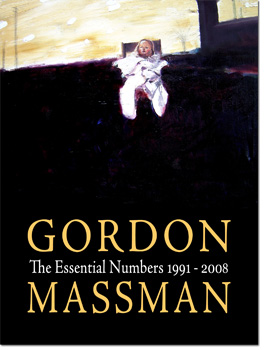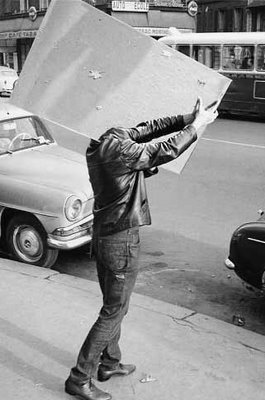Good Mourning
November 10Struck by the abstract nature of absence; yet it’s so painful, lacerating. Which allows me to understand abstraction somewhat better: it is absence and pain, the pain of absence–perhaps therefore love?
I always get an innate pleasure out of reading Roland Barthes. To be fair, I haven’t read much of his early work in which he lays out his ideas on structuralism, but I did read & briefly obsess over Writing Degree Zero. However, I think it’s the later works, where some sort of self is revealed, that I find most pleasurable. Take the ubiquitous Camera Lucida, a text that, surely, enraptures a large number of readers: Barthes centers his ideas on a photograph of his mother in her youth, the entire text, the ideas, arrive at the reader from this starting point.
There’s an intellectually rigorous, yet somehow still very casual, sense of thought present in the work of Barthes. As a thinker, especially a thinker involved with the Tel Quel group & (eventually) post-structuralism, his writing is also remarkably lucid, simple even. Where Derrida, Deleuze & Guattari, Sollers himself can accurately be described as dense in their thoughts, the words on the page, with Barthes there’s a sense of breathing. Many of his books are also often less than 120 pages.
But this is not a trick– Barthes is not post-structuralism lite, and I don’t think anybody would imply this. But I guess that’s not the point here. A friend sent me a copy of the most recent of Barthes’s work to be translated, Mourning Diary. The book is a series of notes left almost daily by Barthes on note cards after the death of his mother. Barthes was remarkably close to his mother, and the death struck a very heavy blow.
March 10th, 2011 / 6:49 pm
Putting this here before I go somewhere: an interview with Zachary Mason about computational mythology, building art, AI, etc. ::::: help S. B./iamaparty.com build an infinite epic poem :::::: Errol Morris has got a new five party essay up :::::::: really dig this post on Snuff Film Aesthetics from Johannes ::::: Dennis Cooper’s blog has been great the last few days : bye
Giorgio Morandi & Daren Wilson

If you google image search “morandi” you’ll be searching for Giorgio Morandi, a relatively unsung Italian painter who spent his adult unmarried life living with his sisters in Bologna painting the same twenty or so objects for decades upon decades, obsessively rearranging them, emptying himself of bias towards the “subject” until the objects held no more importance than the unattributed space they resided in. When, it is said, they asked him why he never dusted the objects, he said that such furriness was visual time. I’m paraphrasing of course. Morandi is my favorite artist because of his faithful reticence, his solemn humor and patience. Daren Wilson is an artist who copies Morandi with an earnestness that seems to precede any postmodern tendency, hanging his paintings “salon” style in what seems to be his studio. I like Daren Wilson a lot. And so, it is both auspicious and odd how I, we, are here — looking at things that are real and not real. The representation of objects in oil; the representation of oil in pixel; the representation of space as contour; the representation of physical objects which we’ve accepted we’ll never touch. Touch your screen, I dare you.
round up: bell hooks, joseph p. wood, jubilat, gordon massman, lowercase letters, et al.

 I picked up Gordon Massman’s The Essential Numbers 1991-2008 at AWP. Nobody told me to; I didn’t know that Blake had said things about it. Jesus, Mary, and Joseph. This is the most depraved-and-beautiful book of poems I’ve read maybe ever. I mean, Massman’s language forces me read every poem aloud (which is one of my gauges of good poetry); the sheer music of the language propels me down the page, and when I’ve finished every poem, I feel a little sick. I’m glad this book exists in the world. I’m not sure I’ll get through it. Here’s an interview.
I picked up Gordon Massman’s The Essential Numbers 1991-2008 at AWP. Nobody told me to; I didn’t know that Blake had said things about it. Jesus, Mary, and Joseph. This is the most depraved-and-beautiful book of poems I’ve read maybe ever. I mean, Massman’s language forces me read every poem aloud (which is one of my gauges of good poetry); the sheer music of the language propels me down the page, and when I’ve finished every poem, I feel a little sick. I’m glad this book exists in the world. I’m not sure I’ll get through it. Here’s an interview.
In the chapter on capitalization in The Copyeditor’s Handbook–I was just forced to buy a new one because I spilled grouper juice all over my tried-and-true copy; I bought it at Borders for a big-chunk discount because Borders is hightailing it out of my town–so, in this new copy, under the heading “Personal Names and Titles,” is a debate about capitalization. For fuck’s sake, people. If bell hooks or k.d. lang want their names lowercased, what’s the problem? Well, according to Amy Einsohn, who feels like my bff some days, Bill Walsh says this:
Sure, before “k.d. lang” there was “e.e. cummings.” But, as most good dictionaries…and New York Times style recognize, these are logos. The names are K.D. Lang and E.E. Cummings. To bow to the artists’ lowercase demand…deprives readers of a crucial visual cue…
Interview Roundup Part Four: Place, Jones, Sneed, Dark, Means
 “For about 15 minutes a day for 41 days I wrote whatever came into my head. I then began elaborating on these bits. Having a hobbyist’s fascination for neurology, I figured they would being to knit themselves into some sort of pattern, or narrative. They did, though not necessarily all interwoven. I had also heard repeatedly that it was impossible to write a Los Angeles novel about all of Los Angeles. This seemed a stupid challenge to me, and I very much like stupid challenges.” – Vanessa Place, in Examiner
“For about 15 minutes a day for 41 days I wrote whatever came into my head. I then began elaborating on these bits. Having a hobbyist’s fascination for neurology, I figured they would being to knit themselves into some sort of pattern, or narrative. They did, though not necessarily all interwoven. I had also heard repeatedly that it was impossible to write a Los Angeles novel about all of Los Angeles. This seemed a stupid challenge to me, and I very much like stupid challenges.” – Vanessa Place, in Examiner
 “I don’t know. There are points in there—I mention the U.S. Census. I think what they are talking about is, I had—this is a real county. I just gave it a different name. Well, in fact, in addition to my intention of doing the research, I was going down to Lynchburg (VA) to visit a friend of mine and use his county as a setting for the novel. I was going to call whatever his county is Lynchburg County or something. But I never got around to visiting him. So I had to create my own place. In doing that I was sort of freed [up], because had I used his county I would have had to know every single thing there is to know about that place in case someone came along and said, “Well, you got this fact wrong.” But if I created my own Manchester County I can say the U.S. Census in 1840 said this many people, and this many people. I can say these three people in the 20th century wrote these history books about this county. And they said this, that and the other. It’s all out of my imagination. I was freed because of that.” – Edward P. Jones, in Identity Theory
“I don’t know. There are points in there—I mention the U.S. Census. I think what they are talking about is, I had—this is a real county. I just gave it a different name. Well, in fact, in addition to my intention of doing the research, I was going down to Lynchburg (VA) to visit a friend of mine and use his county as a setting for the novel. I was going to call whatever his county is Lynchburg County or something. But I never got around to visiting him. So I had to create my own place. In doing that I was sort of freed [up], because had I used his county I would have had to know every single thing there is to know about that place in case someone came along and said, “Well, you got this fact wrong.” But if I created my own Manchester County I can say the U.S. Census in 1840 said this many people, and this many people. I can say these three people in the 20th century wrote these history books about this county. And they said this, that and the other. It’s all out of my imagination. I was freed because of that.” – Edward P. Jones, in Identity Theory
 “You can’t be afraid of what people will say about your work, otherwise you’re going to have a very loud invisible audience in the room while you’re writing. And just like when you’re in the sack, you don’t want an audience. At least I don’t think you do. I don’t, in any case.” – Christine Sneed, in The Nervous Breakdown
“You can’t be afraid of what people will say about your work, otherwise you’re going to have a very loud invisible audience in the room while you’re writing. And just like when you’re in the sack, you don’t want an audience. At least I don’t think you do. I don’t, in any case.” – Christine Sneed, in The Nervous Breakdown
 “I don’t know if there are ghosts. I’ve had experiences, but that doesn’t prove they exist. I lived in an apartment in New York where there was a ghost, and I used that for the last scene in the book where Jane feels a presence in her apartment. But I didn’t make it clear if that came from outside her or inside her. I do think that people have those experiences, but what it is, I’m not sure. I also believe in more subtle experiences where people have the chance to communicate with dead people in all kinds of ways. It’s happened to me and to many people. There’s not as much as a barrier as we think between the living and the dead. Whether it manifests as a ghost, or a strong sense of that person’s spirit, even in your own mind, it’s a very powerful experience. I chose a ghost for the story because it’s the most extreme form of that experience.” – Alice Elliott Dark, in Beatrice
“I don’t know if there are ghosts. I’ve had experiences, but that doesn’t prove they exist. I lived in an apartment in New York where there was a ghost, and I used that for the last scene in the book where Jane feels a presence in her apartment. But I didn’t make it clear if that came from outside her or inside her. I do think that people have those experiences, but what it is, I’m not sure. I also believe in more subtle experiences where people have the chance to communicate with dead people in all kinds of ways. It’s happened to me and to many people. There’s not as much as a barrier as we think between the living and the dead. Whether it manifests as a ghost, or a strong sense of that person’s spirit, even in your own mind, it’s a very powerful experience. I chose a ghost for the story because it’s the most extreme form of that experience.” – Alice Elliott Dark, in Beatrice
 “I think if you’re really good at something you should keep doing it. One of the things that’s going on with a lot of writers today is that they get big contracts for two- or three-book deals, and they get caught in the intense need to fulfill that contract. They crank the novels out. As a short story writer, I’m under pressure to write a novel now, but it seems stupid to me to just make yourself work in a completely different genre if you’re already doing what you want to do.” – David Means, at Powells
“I think if you’re really good at something you should keep doing it. One of the things that’s going on with a lot of writers today is that they get big contracts for two- or three-book deals, and they get caught in the intense need to fulfill that contract. They crank the novels out. As a short story writer, I’m under pressure to write a novel now, but it seems stupid to me to just make yourself work in a completely different genre if you’re already doing what you want to do.” – David Means, at Powells
Aubade 7
I am breaking spring and have finally decided, like many others, the morning is the capital time to write:
1. Mind is wire-scrubbed clean or the opposite, LSD-like dreams. (I recently awoke at the foot of the bed, on the floor, wrapped in residue of twisted thoughts/a past nursing school instructor squawking me down/sweaty blankets). Both states of mind are useful.
2. Stomach is empty. A full stomach makes for naps, not crisp writing. Breakfast is bullshit, as we know.
3. 1,3,7-trimethylxanthine nudges the nerve impulses with a knife and goes Kelly Clarkson on your dopamine. 1,3,7-trimethylxanthine is caffeine. Coffee is morning. Like with running or mint-thinning or higher math, caffeine can assist you.
11. Unless you are Marguerite Duras, you are probably not drunk (though possibly hungover, an odd state not always detrimental to writing).
4. Birds cough. Much better chance of seeing coyotes.
4. Due to tidal friction, nutation, and polar motion, the internet doesn’t work well in the early morning hours. This is a good thing.
The world ended in 1978, we’ve been living in Paul McCartney’s peehole for thirty years.
I don’t believe the apocalypse will be violent,
just as I don’t expect much of a jar
when machines do what
we don’t want to do.
O excuse me, enjoy yr showr!
The descent to nothing will be the party of forever because
bliss means never having to say I know what’s going on.
That’s why I think the world ended in 1978
at the filming of this music video.
“The Peaches Are Cheap” from LOOK! LOOK! FEATHERS by Mike Young
 It occurred to me, hanging out with Mike Young last weekend, that I/maybe we have not talked enough about Mike’s really fantastic collection of stories, LOOK! LOOK! FEATHERS here on HTML Giant. I will endeavor to do so, to at least offer an impression of each story, over the coming weeks.
It occurred to me, hanging out with Mike Young last weekend, that I/maybe we have not talked enough about Mike’s really fantastic collection of stories, LOOK! LOOK! FEATHERS here on HTML Giant. I will endeavor to do so, to at least offer an impression of each story, over the coming weeks.
So, PART ONE.
Placed at the beginning of the book of stories is “The Peaches Are Cheap,” a flash meant maybe not just to be itself, but meant instead to be the slow, disjointed, “look around, case the joint,” opening of all that comes after. It’s a couple of dudes in a car, and all the stuff they see—all this stuff that promises to act like hooks through the rest of the book. These hooks on which we hang the answers to our “where the fuck are we” questions. Hang the things we unpack to learn about where the whole where of the book is. READ MORE >
The inspiration for HTML Giant is discussed in this fine interview with His Most Massive, Blake Butler.


